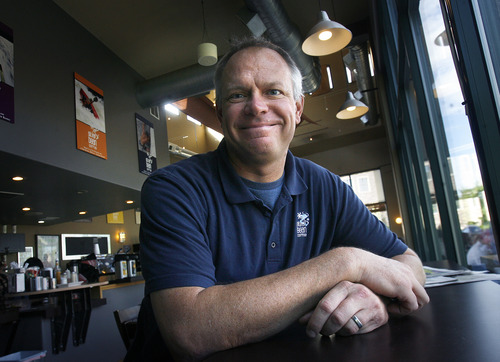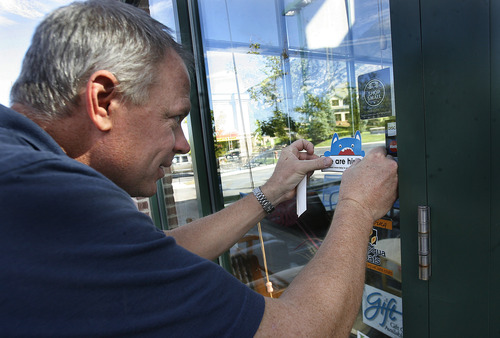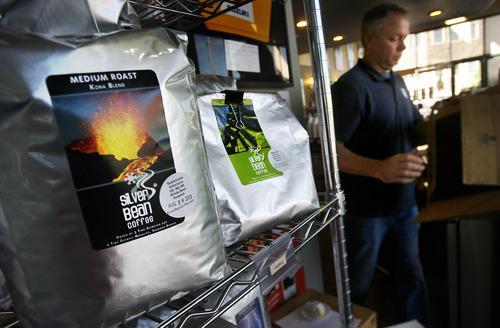This is an archived article that was published on sltrib.com in 2013, and information in the article may be outdated. It is provided only for personal research purposes and may not be reprinted.
New business license fees in the city of Holladay have at least one small business owner starting to look elsewhere for more favorable conditions.
The new Holladay rates took effect July 1, and Matt Happe, the owner of a mom-and-pop coffee shop, says his annual license payment jumped from $200 to $700.
"The guy selling handguns out of his house will only pay $100," Happe said, referring to the new fee to launch a home-occupation business.
In 2007, Happe launched Silver Bean Coffee Company, which includes a roasting warehouse in West Valley City, and coffee shops in Park City, Cottonwood Heights and Holladay's site at 6556 S. 3000 East, which opened two years ago.
"I'm happy to pay my fair share," Happe said, "but this is disproportionate."
In a letter to Holladay's elected officials, Happe said his business license renewals in other cities now pale in comparison to Holladay's: He pays $200 to Summit County, $120 to Cottonwood Heights and $130.50 to West Valley City.
Happe's Holladay lease comes up for renewal in February, and he might relocate Silver Bean elsewhere.
"The city seems anti-small-business right now," he said, adding that he took offense at the city's suggesting he handle the higher fee with a payment plan.
The new fees are based on the first business license fee study conducted in Holladay since its 1999 incorporation.
According to Holladay Business License Official Shantel Marsell, the Zions Bank study showed that Holladay's old fee structure covered only 33 percent of the city's business license operating costs. The increases, approved by the City Council in April, raise that number to 67 percent, still leaving the city to absorb the remaining 33 percent.
Using citywide police data, the study determined where emergency calls were concentrated and recommended higher fees for business categories that require more public-safety or regulatory services. Establishments that serve edibles will pay more, Marsell said, as will businesses frequently hit by shoplifters.
Some businesses will see a decrease, Marsell added. The Zions study found no link between numbers of employees and a disproportionate draw on emergency and regulatory services, so the city's $6 per-employee fee has been eliminated.
Minutes from a March City Council session indicated that the new fee schedule would increase the city's annual business license revenues from $155,000 to $313,278. No members of the public spoke to the issue. On April 18, the City Council unanimously approved the new fees.
For small operations like Silver Bean, the increase could mean forking over a month's profits, Happe said. Meanwhile, large employers are now getting a break, he added.
"The extra $500 won't affect how I run my life," Happe said, "but the principle seems ridiculous."
twitter: @catmck







